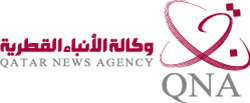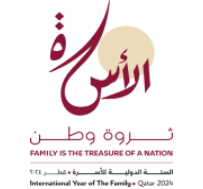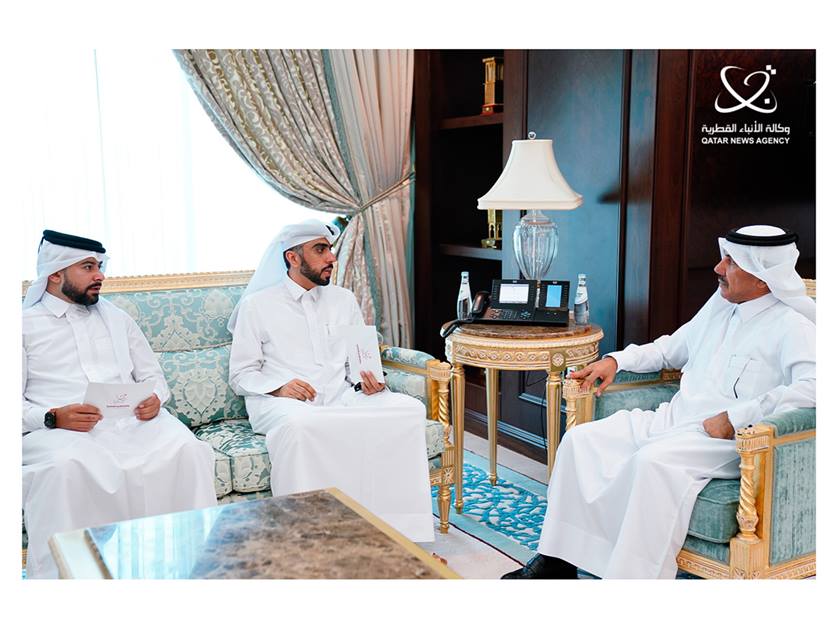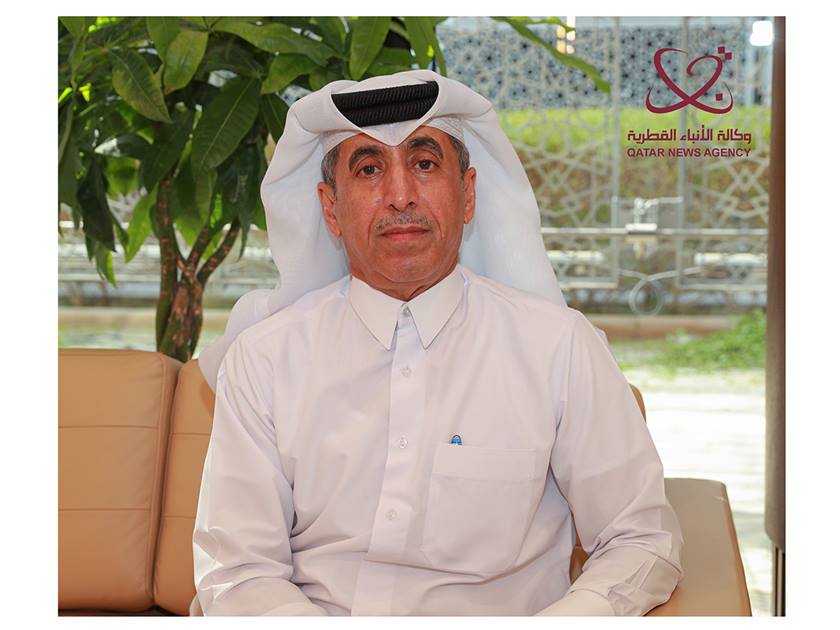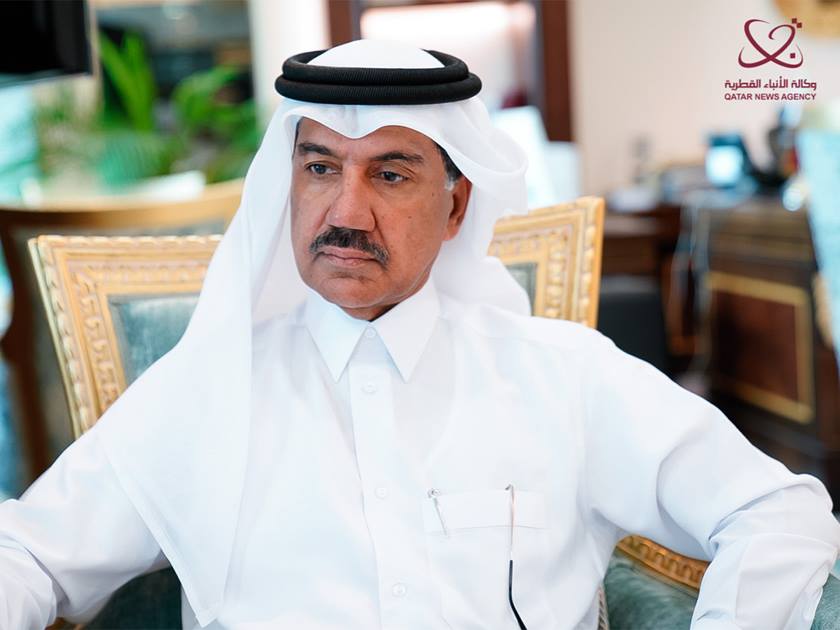Doha, September 19 (QNA) - Dialogue is commonly defined as consultation and exchanging of thoughts and ideas between states, peoples, or individuals to reach a common understanding on a specific controversial issue. Thus, dialogue is a means to overcome hardships and obstacles and achieve a meeting point between talkers. Using dialogue eventually results in consensus and compromise among talkers in an atmosphere of mutual respect by concentrating on what brings them together rather than what brings them apart and away from aspects of winning and losing.
Dialogue has different forms, including dialogue among civilizations, intercultural dialogue, and interfaith dialogue. We need dialogue today more than ever as our world witness various turmoil and changes, extremism, hate speech, and populism. With dialogue, we can stop these problems from aggravating and reach just solutions and avoid the negative and destructive impacts of these problems, not only on their parties but also on international peace and security.
For all this, Qatar realized the paramount importance of dialogue and decided to establish centers and launch initiatives to support dialogue in addition to playing a key role in promoting and supporting the United Nations Alliance of Civilizations (UNAOC) since its early days in all possible means. In a related context, the State of Qatar established the Qatar Committee for Alliance of Civilizations (QCAC) to highlight the contribution of Arab and Islamic civilization to other civilizations and human progress in general, to bring followers of religions closer, and to encourage peaceful coexistence and acceptance of others regardless of their religion, culture, or civilizational background.
In this context, HE Secretary-General of the Ministry of Foreign Affairs and Deputy Chairman of Qatar Committee for the Alliance of Civilizations Dr. Ahmed bin Hassan Al Hammadi said that Qatars accession to UNAOC - one of the United Nations' most important platforms related to intercultural dialogue, civilizational understanding and cooperation comes in line and implementation of targeted goals of the Qatar National Vision 2030 in the field of international cooperation. These targeted goals stipulate intensifying and strengthening cultural exchange with Arab peoples in particular and other peoples in general, sponsoring and supporting dialogue among civilizations and coexistence between different religions and cultures, and contributing to achieving global security and peace through political initiatives, development, and humanitarian aid. He highlighted article 7 of the Permanent Constitution of the State of Qatar which affirmed the principles of international peace and security, the right of peoples to self-determination, not to interfere in the domestic affairs of states, and cooperation with peace-loving nations, pointing out that Qatar was a pioneer in implementing many initiatives, programs, and activities related to dialogue among civilizations before launching UNAOC in 2007.
In his exclusive remarks to Qatar News Agency (QNA), His Excellency elaborated that according to Cabinet Decree No. 8 of 2010 the QCAC seeks to promote the goals of the Alliance of Civilizations as a soft-power tool for preventive diplomacy through the cooperation between all actors at the regional and international levels. The QCACs message emphasizes strengthening the role of Qatar in highlighting the contribution of the Islamic civilization as well as other civilizations to human progress, in addition to its role in promoting dialogue and resolving conflicts, emphasizing the values of tolerance, solidarity, and peace among peoples, and in combating extremism and fanaticism.
To achieve this, since 2010 Qatar has hosted the UNAOC Fellowship Program which comes within the framework of deepening mutual understanding between youths in the western and Islamic worlds by allowing them to increase their awareness of cultural, political, religious, and social differences in addition to the role these youths can play to eliminate extremism and intolerance among both sides, His Excellency added.
His Excellency pointed out that the QCAC publishes books and studies that highlight the role of Islamic civilization in the development of humanity, for example, the study of the impact of the Muslim migration on the arts and culture of the Near East, and the book of civilizational dialogue, as well as other books and studies that cover all aspects of the dialogue among civilizations. Qatar has an influential role in the dialogue among civilizations, as well as a key role in promoting UNAOC by developing relevant plans and supporting it to achieve its goals. Based on its vision and belief that the Alliance of Civilizations represents a unique opportunity for all nations to transcend the traditional national framework, Qatar established the QCAC and hosted several events, conferences, forums, and activities.
In this context, His Excellency pointed out that Qatars plan for the Alliance of Civilizations which is in line with the second generation of the national plans for the Alliance of Civilizations is the third plan of the QCAC. The 2018-2022 plan was preceded by two plans, the first (2010-2012) and the second (2013-2016). The plan (2018-2022) included the implementation of several programs and activities that covered the four aspects of the Alliance of Civilizations (education, youth, migration, and media).
His Excellency summarized the major achievements of the plan in the launch of the Qatar Global Award for Dialogue Among Civilizations for the years 2018,2019 and 2021 which received a wide response from researchers from all over the world, the launch of Qatars 'Alliance of Civilization Award' at the level of students and educational institutions within Qatar for the years 2019,2020, and 2021, and cooperating with Qatar University and the Islamic World Educational, Scientific and Cultural Organization " ICESCO" in issuing the Encyclopedia of Occidentalism, the first-ever and largest intellectual project in the Arab and Islamic world that provides a comprehensive understanding of the western culture from an Islamic point of view.
In his statement to QNA, HE Secretary-General of the Ministry of Foreign Affairs and Deputy Chairman of Qatar Committee for the Alliance of Civilizations Dr. Ahmed bin Hassan Al Hammadi revealed that QCAC is preparing a new plan for the next five years that goes in line with Qatar Third National Development Strategy (2023-2027), which is being prepared by the Planning and Statistics Authority. His Excellency indicated that this plan is based on several principles, among which comes the speeches and directives of HH The Amir, Qatar National Vision 2030, Qatar Second National Development Strategy 2018- 2022, Unified Arab Strategic Plan for Alliance of Civilizations, programs and recommendations of UNAOC global forums, in addition to adding new programs and activities beside the periodic programs and activities that it implements in the four fields of the Alliance of Civilizations (education, youth, migration, and media).
HE Dr. Al Hammadi elaborated that the Alliance of Civilizations has formed – since its inception – a leading platform of the United Nations for dialogue, cooperation and understanding among different cultures after the General Assembly Resolution No. (14/64) of 2009 in support of this alliance. His Excellency said that the alliance was able in record time to link governments and local authorities, civil society organizations and the media in spreading the culture of dialogue, understanding and respect among civilizations, cultures, religions and beliefs. This emphasizes the influential role played by the State of Qatar in the Alliance of Civilizations and in building bridges of peace and harmony between countries and societies, combating extremism, fanaticism and hate speech, and its interest in spreading the culture of tolerance and acceptance of the other.
His Excellency indicated that the Alliance of Civilizations has supported and highlighted many projects that help understanding and reconciliation among cultures at the global level, especially between Western and Islamic societies. His Excellency pointed out that one of the most important initiatives in this regard is the "Young Peacebuilders" initiative, which was designed to support youths in acquiring skills that enhance their positive role in issues of peace, security, conflict prevention, and combating extremism and fanaticism. Another initiative is to support educational programs related to religions and beliefs by creating an electronic portal for religions and beliefs educational resources including civil and moral education and education on tolerance and respect for others.
His Excellency added that as for the role of the State of Qatar in spreading the culture of peace and combating international extremism and fanaticism, Qatar has supported the initiatives of the Alliance of Civilizations in this field, as the State of Qatar is the third biggest contributor to the Trust Fund of the Alliance of civilizations behind Turkey and Spain. Last May, Qatar hosted the 14th Doha Conference for Interfaith Dialogue under the theme of "Religions and Hate speech... Scriptures and Practice." Also, Qatar supported Youth Solidarity Fund, which provides seed funding for projects undertaken by young people that offer innovative and effective approaches to intercultural dialogue.
On the objective of the Alliance of Civilizations Award, which was launched by the QCAC in 2018, in cooperation with the Qatar National Committee for Education, Culture and Science, His Excellency noted that the launch of this award comes as a joint project between the two committees within the framework of implementing the third objective of the State of Qatar's plan for the Alliance of Civilizations. The objective emphasized the provision of awards of appreciation for outstanding research work and funding of solid research in dialogue among civilizations. His Excellency said that the award aims to develop students' scientific research skills in the topics of the Alliance of Civilizations and encourage them to provide the best research in various fields of the Alliance of Civilizations, as well as encourage educational institutions to provide best practices and initiatives that enhance the values and concepts of the Alliance of Civilizations, pointing out that the award for the year 2020 was on immigration and displacement.
HE Secretary-General of the Ministry of Foreign Affairs and Deputy Chairman of Qatar Committee for the Alliance of Civilizations reviewed the main activities of the committee in the four mentioned fields saying it is represented in implementing the awareness plan to spread the culture of dialogue among civilizations in cooperation with schools, universities and youth institutions within the country and implement the program of cultural seminars in cooperation with senior officials and specialists in the field of dialogue and Alliance of Civilizations inside and outside the country. His Excellency pointed out that among these seminars were a conference on the impact of coronavirus (COVID-19) on the situation of migrants and displaced persons, a seminar on the role of knowledge in interaction between civilizations, and a seminar of coexistence with the other: Muslims in China as a model.
HE Dr. Ahmed bin Hassan Al Hammadi commented on the relationship of the QCAC with civil society in Qatar, saying that its work is not limited to achieving its vision on cooperation and partnership with government institutions and international organizations only, but it has also established partnerships with some civil society institutions in Qatar such as the Doha International Center for Interfaith Dialogue (DICID), the Qatar Youth Hostels Association, and Qatar Charity, where many events and activities included in the State of Qatar’s plan for the Alliance of Civilizations (2018-2022) were implemented in the four areas of the alliance (education, youth, migration, and media).
At the international level, the QCAC organized the Doha Pre-Forum 2011 with Civil Society Organizations (CSO) with the participation of more than 170 civil society leaders from around the world, stressing that this forum has achieved its goals of optimal utilization of the efforts of civil society institutions in promoting the values of the Alliance of Civilizations and spreading the culture of dialogue among different cultures.
In his response to the question of the main challenges facing dialogue among civilizations and intercultural dialogue in a world dominated today by conflict and hate speech, His Excellency pointed out that the dialogue among civilizations is not only an official international invitation for a future initiative that can connect societies but rather a civilized process - that has been going on since ancient times - of connecting civilizations. His Excellency pointed out that the major event that took place on September 11, 2001, which led to the bombing of the World Trade Center in the United States, called on the UN to consider the year 2001 as "Year of Dialogue Among Civilizations", to reduce the tension and polarization that occurred after that attack.
In a related context, His Excellency said that dialogue among civilizations – after two decades of that attack – still faces internal and external challenges within societies, adding that the western view of its civilization and the other's civilization is the biggest obstacle that prevents them from engaging in a dialogue among civilizations with the other that is non-western. His Excellency pointed out that the rising political and social populism – especially in western countries – constitutes an obstacle to civilized interaction of the West with non-western – particularly Arabs and Muslims – in addition to being an actual manifestation of the civilizational crisis in the West.
Also, HE Dr. Al Hammadi pointed out that the Islamophobia "anti-Islam and Muslims" constitutes one of the main challenges facing dialogue among civilizations with the West in particular, especially with the influx of Arab and Muslim immigrants to western countries where the pace of hostilities against immigrants, refugees, and even European citizens of Arab and Muslim origin is rising.
His Excellency stressed that in order to confront the challenges facing a true dialogue among civilizations and intercultural dialogue, especially among the Islamic and Western worlds that are facing several fights and conflicts, a self-critical dialogue is required within each civilization to overcome contradictions and internal conflicts, until objective circumstances take shape for all parties and become effective in forming a multi-civilizational dialogue to build a global community where the values of brotherhood, peace, human solidarity, and respect for all beliefs prevail and to reach global citizenship that eliminates hate speech as well as the religious and ethnic inferior view of the other.
As well known, the State of Qatar believes that building nations starts with forging a human who is ready to cooperate with his fellow humans to establish a community based on mutual respect and coexistence in peace and harmony despite any religions, cultures, races, and civilizations differences and that there is no way for coexistence and cooperation among individuals, groups, or states except through constructive dialogue based on recognition of the other and his identity and respect for his culture, civilization, beliefs, and sacredness.
In his statement to QNA, HE Chairman of the Doha International Center for Interfaith Dialogue (DICID) Ibrahim bin Saleh Al Nuaimi said that the first conference for interfaith dialogue in Qatar was launched in 2003 and was called upon by HH the Father Amir Sheikh Hamad bin Khalifa Al-Thani. Since 2003, Qatar has continued to hold interfaith dialogue conferences – 14 conferences – the last of which was in May under the title of "Religions and Hate speech... Scriptures and Practice."
The first Interfaith Dialogue in Doha was basically a seminar held under the title 'Building Bridges'. In his opening speech of the seminar, HH the Father Amir Sheikh Hamad bin Khalifa Al-Thani described the event as a meeting that seeks peace and restoring the spirit of the supreme values and principles of Islam and Christianity alike, with the belief in monotheism, and calls for fraternity, equality, tolerance, moderation and renunciation of violence, as well as respect for human rights, preservation of human dignity and protection of its life and property.
In the following year, specifically in May 2004, the second Interfaith Dialogue came under the title "Freedom of Religion", and it was a real indication of the State of Qatar's tendency towards sustaining and sponsoring interfaith dialogue, after it sensed enthusiasm and support for this step, which was praised by global religious leaders and prestigious international institutions.
The conferences that addressed multiple issues followed, including topics like the role of religions in building human civilization as well as raising generations, spiritual values and world peace, religious values between peace and respect for life, human solidarity, successful experiences in dialogue, religious and human rights, spiritual and intellectual security in light of religious teachings, and other issues.
In this regards, Dr. Al Nuaimi elaborated that the DICID is one of a few centers around the world that has a permanent specialized activity in the field of dialogue among followers of monotheistic religions; and is also known regionally and internationally for its call for coexistence, respect for the other’s opinion, and tolerance, as well as its activities that spread all over the globe earning it a good reputation. He stressed that the center’s approach and objectives represent the objectives of the State of Qatar in spreading peace, love, and virtue that religious values call for and that wars and hostilities can never create development or achieve stability for societies.
Dr. Nuaimi said that the DICID seeks constructive dialogue among followers of religions to understand the principles of religious teachings better, to be harnessed to the service of humanity, based on mutual respect and recognition of differences, in collaboration with individuals and relevant institutions. He added that the center concluded several cooperation agreements with cultural and academic institutions within Qatar and worldwide, which resulted in launching several conferences and seminars in cooperation with these centers in their countries funded by the DICID. Also, the DICID periodically holds seminars attended by specialists and presented by scientists and researchers.
He added that at the local level, the center played its role in providing the appropriate environment for training Qatari youths and residents on issues of dialogue and created opportunities for communication and cooperation between citizens and residents regardless of their religion through round tables for dialogue between communities in various fields, including education, health, legal matters, and cultural life in general. The center represented a link between them and the Qatari society and official authorities to deliver their views on all issues in cooperation between DICID and different entities, including schools, higher education institutions, charities, churches, and other civil society institutions. In 2013, the DICID launched the Doha International Prize for Interfaith Dialogue under the title "Best Practices in Interfaith Dialogue" where winners were declared in its 4th edition in May 2022.
Dr. Al Nuaimi said that as a result of all those efforts and appreciated, successful, positive initiatives that are concerned with dialogue among civilizations and interfaith dialogue, in addition to adopting dialogue as a mean to resolving conflicts, Qatar has become a pioneer state in areas that involve an explicit and sincere call for civilized coexistence and peace, earning it a prestigious global position and making it one of the most influential countries in issues of international peace and security.
There is no doubt that this multi-dimensional and multi-level active dialogue movement reflects a deep belief in the value of dialogue as a civilized principle, with a keenness to achieve rapprochement between civilizations, religions followers, and cultures, as well as reduce tensions, conflicts, and clashes between them, through well-thought-out plans and programs.
The distinguished Qatari role – which is well-welcomed and respected by the international community – stems from Qatar’s belief in the importance of building sustainable societies capable of achieving sustainable development goals. It also stems from being an active member of the international community and its organizations, institutions, and relevant committees that call for such noble ends. Eventually, this will lead to sustainable peace and security, moving from the phase of dialogue to the effective partnership between civilized, religious, and civil community institutions to establish a civilized, religious, loving, and peaceful human spirit capable of building a civilized peaceful world, which is what Qatar has always been calling for.
The dialogue among civilizations and intercultural dialogue based on mutual respect and respect for equal dignity represent a prerequisite for achieving social cohesion, reconciliation among peoples, and peace among nations. Therefore, there will be no peace among all civilized, religious, cultural, and societal components based on human partnership unless there is a dialogue among them. Based on all that, dialogue is the means to reach the desired goal and to bring humanity to safety. (QNA)
